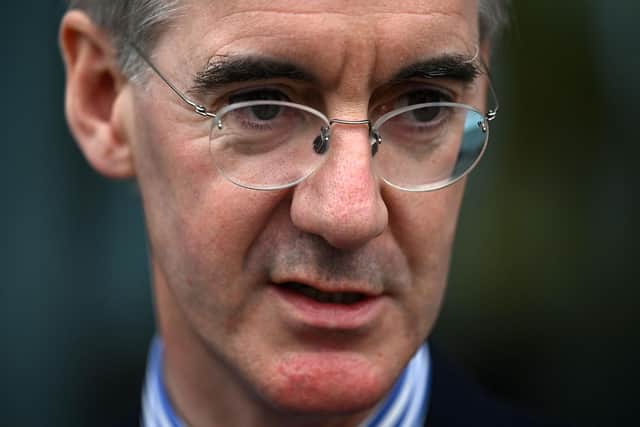Jacob Rees-Mogg says new oil and gas licences will boost UK economy
The UK Government minister spoke out as the North Sea Transition Authority (NSTA) began the 33rd round of offshore licences.
Licences are being made available for sectors of the North Sea – known as blocks – with the NSTA estimating that over 100 may be granted.
Advertisement
Hide AdAdvertisement
Hide AdSpeaking ahead of the process getting under way on Friday, Mr Rees-Mogg said: “Putin’s illegal invasion of Ukraine means it is now more important than ever that we make the most of sovereign energy resources, strengthening our energy security now and into the future.


“Ensuring our energy independence means exploiting the full potential of our North Sea assets to boost domestic production – recognising that producing gas in the UK has a lower carbon footprint than importing from abroad.
“That is why we welcome the launch of the NSTA’s new licensing round, which will help support highly skilled jobs across the UK’s energy industry, boosting both our energy security and our economy.”
His comments came NSTA’s chief executive Andy Samuel insisted that security of supply should “not be in conflict with net zero” ahead of a new round of licensing in the North Sea.
Advertisement
Hide AdAdvertisement
Hide AdCompanies are being urged to apply for licences covering areas to the West of Shetland, in the Northern North Sea, the Central North Sea, the Southern North Sea and East Irish Sea.
As the process gets under way, the NSTA is publishing data packs with summaries of key prospects and discoveries, hoping this will “stimulate exploration and encourage new opportunities”.
A total of 898 blocks and part blocks are being made available – but in a bid to encourage production of new oil and gas supplies as quickly as possible, the NSTA has identified four “priority cluster areas” in the Southern North Sea.
These areas – located off Yorkshire, Norfolk and Lincolnshire – are known to contain hydrocarbons, and which are close to existing infrastructure, giving them the potential to be developed quickly.
Advertisement
Hide AdAdvertisement
Hide AdThe NSTA has said it will seek to license these areas ahead of others.
Dr Samuel said: “The NSTA is working closely with industry and government to meet UK needs with North Sea supplies produced as cleanly as possible.
“The industry has committed to halving upstream emissions by 2030 and investing heavily in electrification, carbon storage and hydrogen.”
Mike Tholen, acting chief executive for industry body Offshore Energies UK (OEUK), said: “The UK gets 75 per cent of its total energy from gas and oil so producing our own reduces our vulnerability to global shortages of the kind caused by the Ukraine conflict.”
Advertisement
Hide AdAdvertisement
Hide AdHe added: “Our industry is committed to net zero and also to helping build the low-carbon energy systems of the future. But this is a journey that will take decades during which we will still need gas and oil.
“Many existing UK oil and gas fields are in decline so the risk is that production will drop much faster than demand, leaving us more dependent on imports. That is why new licences are so important.”